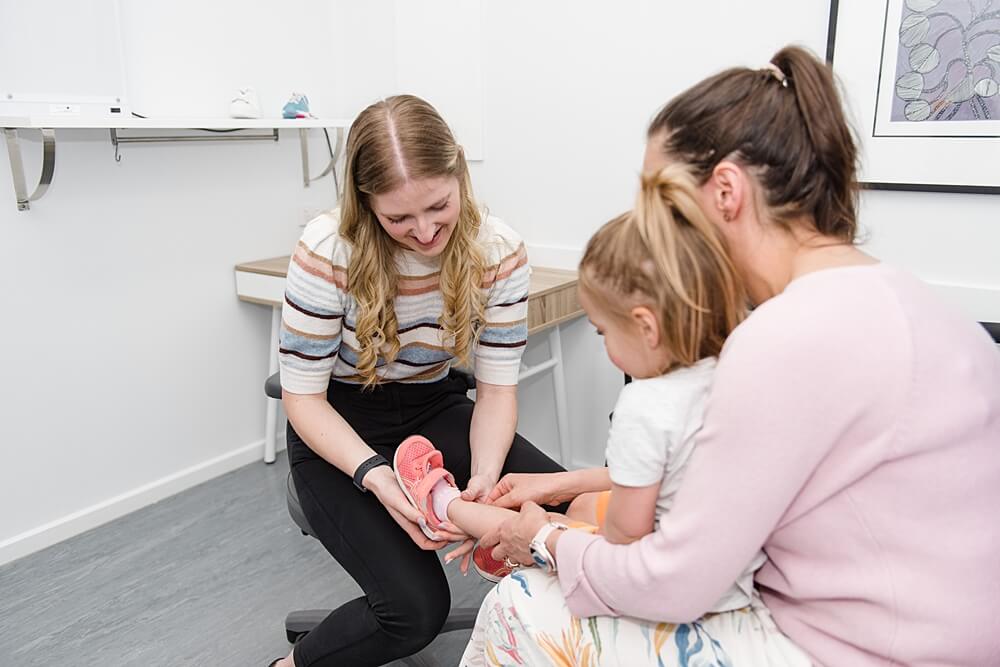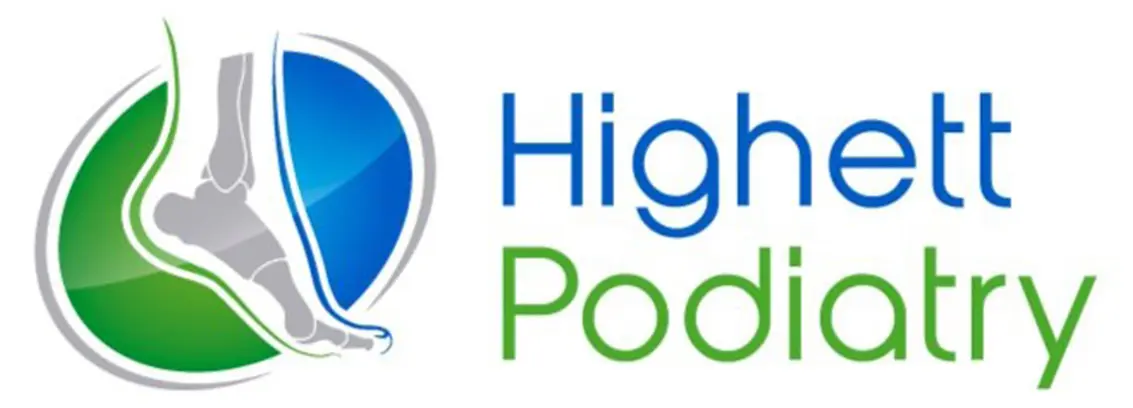Footwear Assessments and Advice
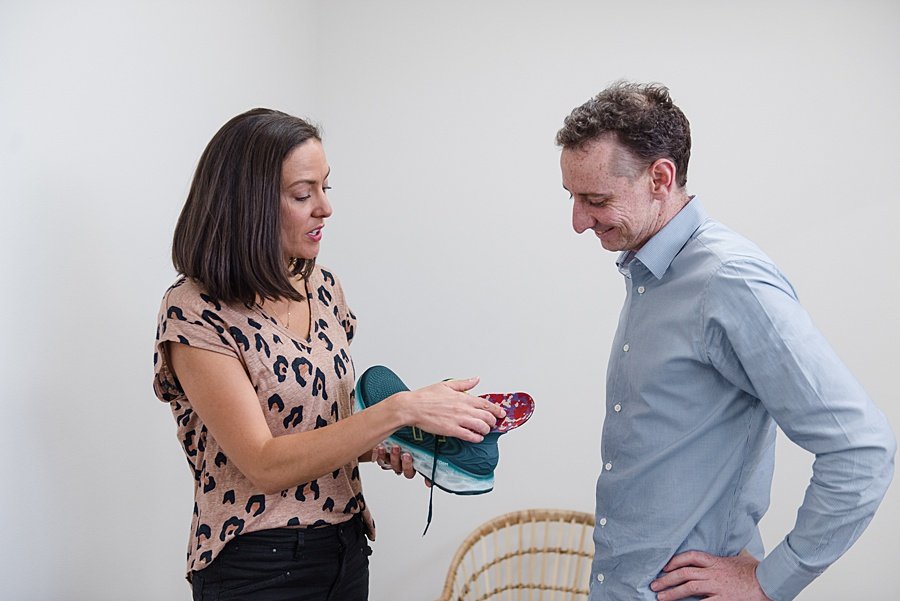
The Importance of a Good Fit
Footwear plays an important role in protecting your feet as well as offering support. We believe a lot of foot and ankle conditions or injuries can be reduced or alleviated if the right footwear is chosen for the natural shape of your feet.
Feet should not be forced to conform to the shape of shoes. Ill fitting shoes can contribute to the development of corns, calluses, bunions, hammertoes and other crippling foot problems and may contribute to pain in your knees, back, ankles or hips.
The ideal shoe should accommodate your foot shape, support your biomechanical needs and be appropriate for the activities you undertake.
Shopping for the Ideal Shoe
When selecting the right shoes for your feet, follow these simple guidelines:
- Determine the main activity you want to use the shoes for (i.e. leisure, work, sport).
- Have both feet measured every time you purchase shoes. Your foot may change shape and size as you get older.
- Try on new shoes towards the end of the day, as feet will often swell and become larger after a day of standing or sitting. Make sure you try on both shoes.
- Fit new shoes to your largest foot. Most people have one foot larger than the other.
- Sizes vary among shoe brands and styles. Rely on how a shoe fits, not on the marked size. When the shoe is on your foot, toes should wriggle freely.
- Shoes should feel firm not tight.
- Most high heeled-shoes have a pointed narrow toe box that can cramp the toes and forces them into an unnatural triangular shape. As heel height increases, the pressure under the ball of the foot may double, leading to short and long term damage to soft tissue, joints and toes.
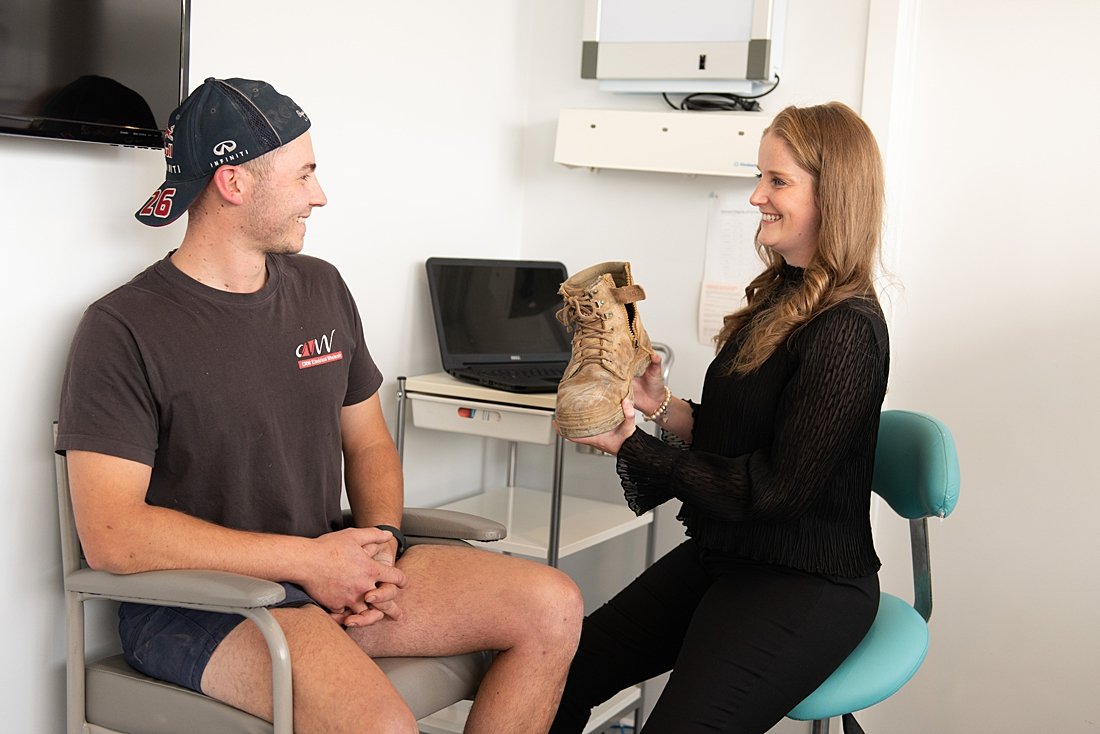
What to Look for in a Well Fitting Shoe
Materials: Leather is preferred for shoe uppers for durability and strength. Leather also allows for good evaporation of perspiration.
Synthetic or rubber are best for the sole as they are generally more durable, shock absorbent and provide better grip.
Security: Shoes should be secured on the feet with laces, straps or buckles – especially walking shoes. If your feet have to work to hold your shoes in place, your foot muscles may be strained and result in foot fatigue.
Shape: Pointy shoes can make your toes ‘claw’. This may affect overall body posture. Clenched toes can cause rubbing, leading to corns and calluses. Broad-toed shoes allow the toes more room and can help prevent pressure injuries.
Firm Heel Counter and Adequate Heel Height: The back of the shoe should not be prone to crushing or collapsing. Heel height no greater than 21⁄2 cms (1 inch). Broad base gives greater stability. High heels increase pressure on the ball of the foot, leading to spinal problems and excessive forces of the forefoot joints.
A Stiff Sole: Your shoes should have a well-padded sole. A cushioned sole absorbs shock and reduces pressure on the feet. The shoe should only bend or flex across the ball of the feet. There should be only minimal twist through the midsole of the shoe.
Toe Clearance: The sole should be curved upwards at the toe end of the shoe. This will make it easier for the foot to roll forward. Toe clearance is known to prevent trips and falls. There should be 1/2-inch space from the end of your longest toe to the end of the shoe.
Toe Box: The toe box should be deep and wide enough to allow toes to move and spread naturally.
How your Podiatrist can Help?
Appropriate footwear at any age can assist with confidence, stability and mobility.
If you are still not sure if the shoes are right for you, some good shoe shops may allow you to bring the shoes to your next podiatry appointment for discussion. The shoes must only be worn on carpet and for a return they must be returned “as new”. Check with your shoe shop.
As podiatrists, we have each spent time either working or volunteering at local shoe stores in order to stay up to date with latest shoe trends.
We also have regular contact with some of Melbourne’s best shoe stores, so we can help you find the right shoes, ensure they will fit well and make sure they will last a long time.
Our preferred shoe suppliers are:
- Josephines (Hampton)
- Bayside Shoes (Seaford)
- Active Feet (Sandringham)
- New Balance Factory Outlet (Cheltenham)
It is important to bring to your appointment all your high use shoes, ie. casual and work shoes that you wear regularly, as well as your sports shoes and running shoes.
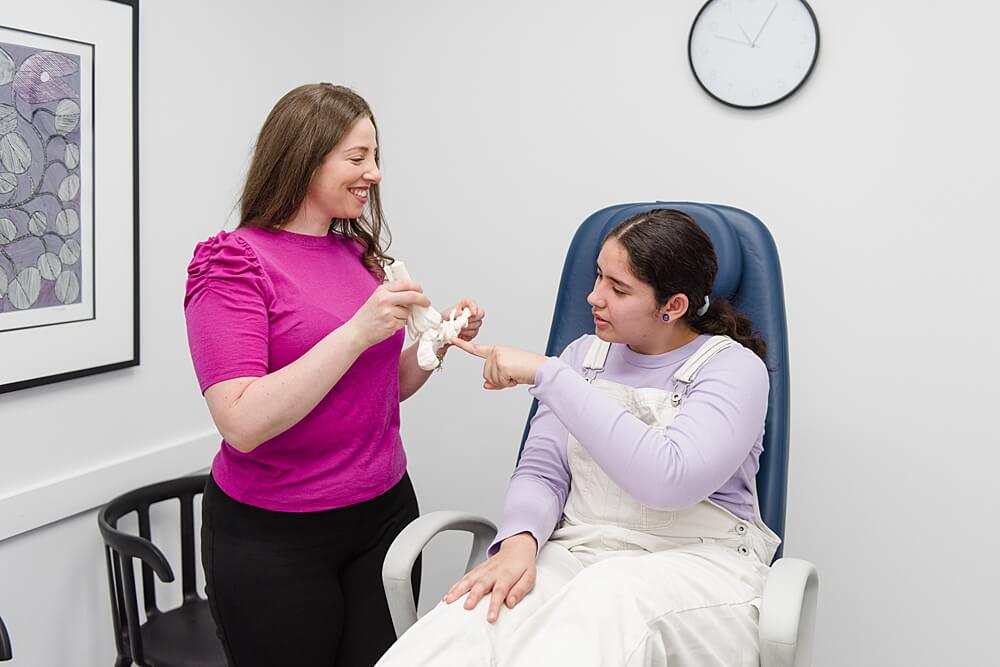
The Importance of a Good Running Shoe
We have put together a running shoe guide with our friends at Active Feet in Sandringham to provide you footwear advice to ensure the running shoes you choose keep the feet secure and help avoid injury.
